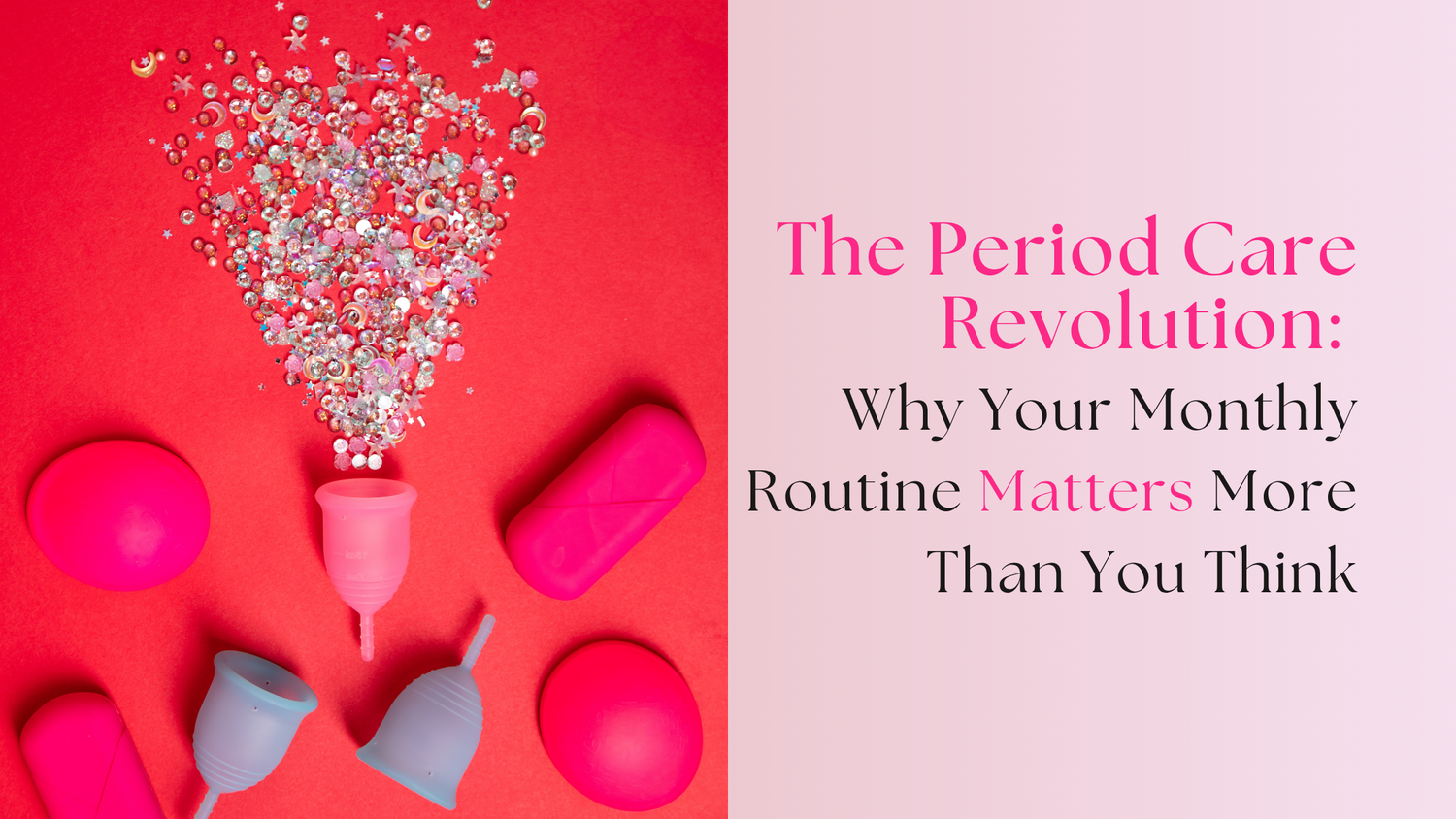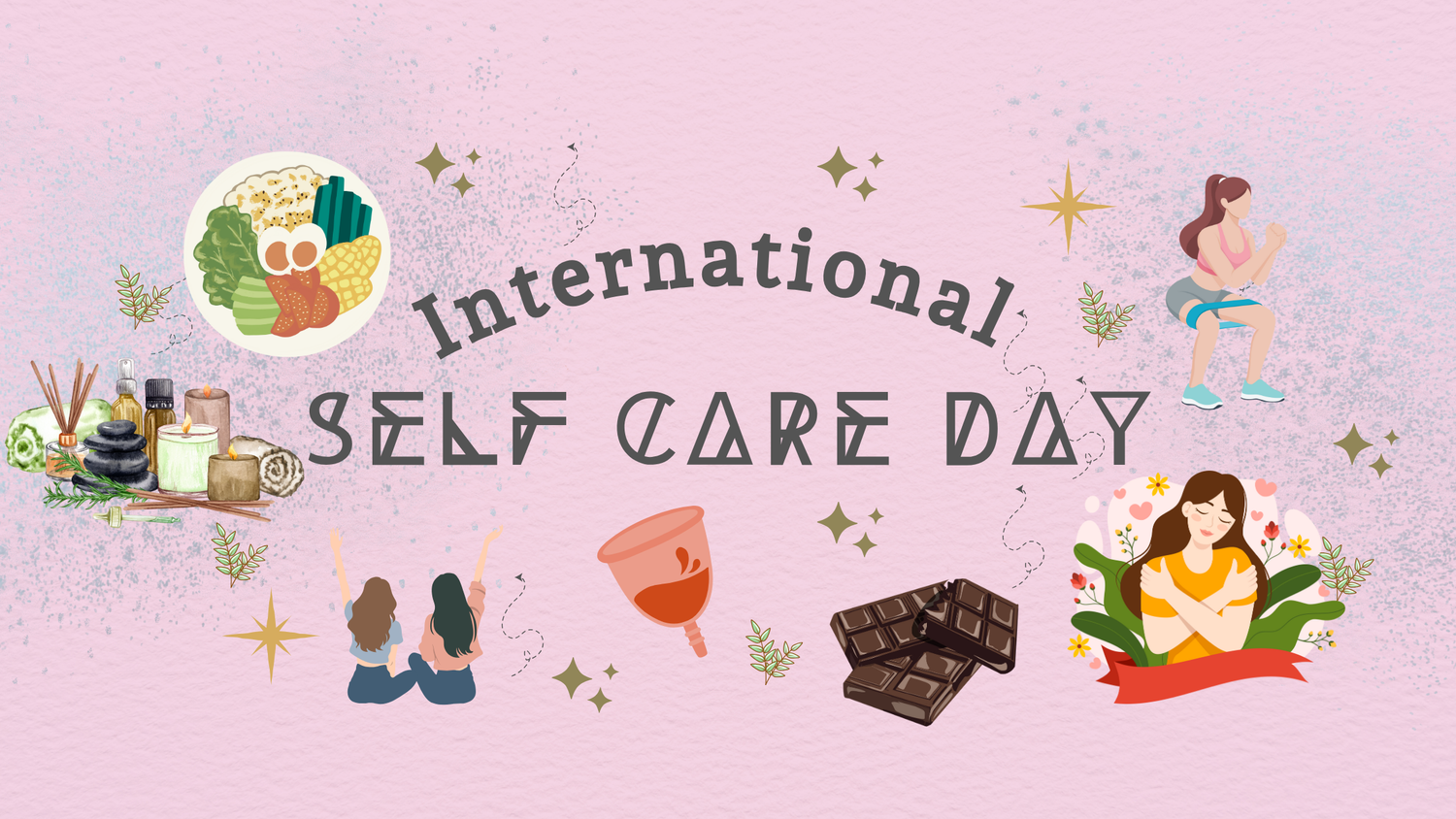Discover how PCOS symptoms change from your 20s to 30s. Expert guide for Australian women on diagnosis, treatment, and natural management strategies.
If you're a woman in Australia experiencing irregular periods, unexplained weight gain, or struggling with fertility, you might be amongst the 1 in 5 Australian women living with Polycystic Ovary Syndrome (PCOS). But here's something that might surprise you: PCOS can look dramatically different depending on whether you're in your 20s or 30s, and understanding these differences is crucial for getting the right support at the right time.
Whether you've just received a PCOS diagnosis or you've been managing symptoms for years, this comprehensive guide will help you understand what to expect, when to be concerned, and most importantly, how to take control of your hormonal health no matter what decade you're in.
PCOS in Australia: Key Statistics
- 1 in 5 Australian women of reproductive age have PCOS
- Average diagnosis time: 2.3 years
- 70% experience insulin resistance by their 30s
- 3x higher depression rates compared to women without PCOS
- Annual treatment costs: Up to $3,500 in medical appointments and supplements
Understanding PCOS: More Than Just "Cysts" on Your Ovaries
Before we dive into the age-specific differences, let's clear up a common misconception. Despite its name, PCOS isn't actually about cysts on your ovaries. Those "cysts" are actually follicles containing eggs that haven't been released during ovulation. PCOS is fundamentally a hormonal disorder that affects how your ovaries work, impacting everything from your menstrual cycle to your metabolism.
For Australian women, this condition is incredibly common, yet many of us spend years without a proper diagnosis. Research shows that women with PCOS often see multiple healthcare providers before receiving answers, particularly when symptoms first appear in their early 20s.
🚨 Red Flag Symptoms Requiring Immediate Medical Attention:
- Severe pelvic pain
- Heavy bleeding requiring pad changes every hour
- Sudden severe mood changes or suicidal thoughts
- Signs of diabetes (excessive thirst, frequent urination, unexplained fatigue)
PCOS Symptoms in Your 20s: The Early Warning Signs
The Classic Presentation
In your 20s, PCOS symptoms often centre around reproductive and cosmetic concerns. You might notice:
Menstrual Irregularities
This is often the first red flag. Your periods might be irregular, absent for months, or unpredictably heavy. Whilst irregular periods in your teens can be normal, persistent irregularity into your 20s warrants investigation.
Skin and Hair Changes
Adult acne that doesn't respond to typical treatments, unwanted hair growth on your face or body (hirsutism), or thinning hair on your scalp can all signal hormonal imbalances characteristic of PCOS.
Weight Management Challenges
You might find it increasingly difficult to maintain your weight despite eating the same way you did in your teens. Weight gain, particularly around your midsection, is common and frustrating.
Mood and Energy Fluctuations
Many women in their 20s with PCOS experience mood swings, anxiety, or depression, often dismissed as "normal" young adult stress.
The Fertility Focus
In your 20s, you might not be actively trying to conceive, but irregular ovulation can be concerning if you're thinking about future family planning. Many young women discover their PCOS when they come off hormonal contraception and their periods don't return to normal.
Diagnosis Challenges in Your 20s
Unfortunately, getting a PCOS diagnosis in your 20s can be particularly challenging in Australia. Symptoms are often dismissed as "normal" period irregularities or attributed to stress, poor diet, or being "young and figuring things out." This dismissive approach can delay proper treatment by years.
💡 Quick Action Steps for Your 20s:
- Track your menstrual cycle for at least 3 months
- Document symptoms in a health diary
- Request specific PCOS testing from your GP
- Seek a second opinion if dismissed
- Consider private healthcare options if Medicare wait times are long
PCOS Symptoms in Your 30s: When Things Get More Complex
Metabolic Concerns Take Centre Stage
By your 30s, PCOS often shifts from primarily reproductive symptoms to more serious metabolic concerns:
Insulin Resistance
Up to 70% of women with PCOS develop insulin resistance, and this becomes more pronounced in your 30s. You might notice increased sugar cravings, energy crashes after meals, or difficulty losing weight despite healthy eating.
Weight Gain Acceleration
The metabolic changes that begin in your 20s often accelerate in your 30s, making weight management increasingly challenging.
Cardiovascular Risk Factors
Blood pressure and cholesterol levels may start to climb, setting the stage for future heart disease risk.
Fertility Becomes Urgent
For many women, their 30s bring active family planning, making PCOS-related fertility challenges feel more pressing. Whilst pregnancy is absolutely possible with PCOS, you might need additional support or medical intervention.
Ovulation Irregularities
Unpredictable or absent ovulation makes timing conception difficult.
Pregnancy Complications
Women with PCOS face higher risks of gestational diabetes, pregnancy-induced hypertension, and miscarriage.
Age-Related Fertility Decline
Combined with natural age-related fertility decline, PCOS can make the biological clock feel particularly urgent.
Long-Term Health Risks Emerge
Your 30s are when the long-term health implications of PCOS become more apparent and concerning.
🎯 Quick Action Steps for Your 30s:
- Annual comprehensive health checks including glucose tolerance tests
- Blood pressure and cholesterol monitoring
- Fertility assessment if family planning is desired
- Mental health support and stress management strategies
- Specialist referrals for integrated PCOS care
The Fertility Journey: PCOS at Different Life Stages
Fertility in Your 20s with PCOS
If you're in your 20s with PCOS Australia, you have time on your side. This decade is ideal for:
- Establishing healthy lifestyle patterns that support hormone balance
- Working with healthcare providers to optimise your metabolic health
- Understanding your cycle and ovulation patterns
- Considering fertility preservation options if family planning is years away
Many women with PCOS in their 20s can achieve pregnancy naturally with lifestyle modifications and basic fertility awareness methods.
Fertility in Your 30s with PCOS
The fertility landscape changes significantly in your 30s:
Time Sensitivity
Natural fertility begins declining after 35, making early intervention more important.
Treatment Urgency
You might need more aggressive treatments like ovulation induction medications or assisted reproductive technologies available through Australian fertility clinics.
Comprehensive Care
Successful pregnancy often requires managing not just ovulation, but also insulin resistance, weight, and other metabolic factors.
Pregnancy Monitoring
Closer monitoring during pregnancy is typically necessary due to increased complication risks, often covered under Medicare's shared care arrangements.
Long-Term Health Risks: What Australian Women Need to Know
Metabolic Health Complications
PCOS significantly increases your risk of developing:
Type 2 Diabetes
Women with PCOS are 3-7 times more likely to develop type 2 diabetes, often by their 40s. The good news is that this is largely preventable with proper management.
Cardiovascular Disease
Heart disease risk is significantly elevated, particularly if metabolic symptoms aren't managed early. This is especially important given Australia's high rates of cardiovascular disease.
Sleep Apnoea
Often overlooked, sleep disorders are common in women with PCOS and can worsen other symptoms.
Mental Health Considerations
The psychological impact of PCOS is profound and often underestimated:
- Depression rates are 3 times higher in women with PCOS
- Anxiety disorders are significantly more common
- Body image issues and eating disorders occur at higher rates
- Quality of life can be substantially impacted without proper support
Cancer Risks
Long-term unopposed oestrogen exposure (from lack of ovulation) can increase endometrial cancer risk, making regular monitoring important.
Treatment Approaches: Personalised Care for Every Decade
Treatment in Your 20s
Focus on Foundation
Your 20s are the perfect time to establish healthy habits that will serve you for decades.
Lifestyle Optimisation
Diet and exercise modifications can have profound effects when started early.
Education and Support
Understanding your condition and building a support network is crucial for long-term success.
Treatment in Your 30s
Comprehensive Approach
Treatment becomes more complex, often requiring multiple interventions.
Fertility Support
If you're trying to conceive, treatments like Metformin, ovulation induction, or assisted reproductive technologies might be necessary.
Metabolic Management
Aggressive management of insulin resistance and cardiovascular risk factors becomes paramount.
Regular Monitoring
More frequent health screenings become important to catch complications early.
Diet and Nutrition: Fuelling Your Body Through Every Decade
Nutritional Strategies for Your 20s
Anti-Inflammatory Focus
Emphasise foods that reduce inflammation and support hormone balance, particularly important in Australia's climate and lifestyle.
Blood Sugar Stability
Learn to eat in ways that keep your blood sugar stable throughout the day.
Nutrient Density
Focus on getting maximum nutrition from your food choices, utilising Australia's excellent fresh produce.
Sustainable Habits
Develop eating patterns you can maintain long-term rather than following restrictive diets.
Nutritional Strategies for Your 30s
Metabolic Support
Your nutrition needs to work harder to support your changing metabolism.
Fertility Optimisation
If you're trying to conceive, specific nutrients become particularly important.
Inflammation Management
Chronic inflammation management becomes increasingly important for long-term health.
Convenience Solutions
Realistic nutrition strategies that fit your busy lifestyle become essential.
Key Nutritional Principles for All Ages
Low Glycaemic Index Foods
Choose complex carbohydrates that don't spike blood sugar - think Australian wholegrain breads, quinoa, and sweet potato.
Healthy Fats
Include omega-3 fatty acids from Australian seafood and other anti-inflammatory fats.
Adequate Protein
Support muscle mass and blood sugar stability with quality protein sources including lean Australian beef, fish, and plant-based options.
Fibre Rich Foods
Support digestive health and hormone metabolism with plenty of Australian fruits and vegetables.
Limit Processed Foods
Reduce inflammation and support overall health by choosing whole foods over processed alternatives.
Lifestyle Modifications: Building Your PCOS Management Toolkit
Exercise Strategies by Age
In Your 20s
Focus on building sustainable exercise habits. High-intensity interval training (HIIT) can be particularly effective for improving insulin sensitivity. Strength training helps build muscle mass that will serve you well as you age.
Take advantage of Australia's outdoor lifestyle - beach walks, hiking, cycling, and outdoor fitness classes can make exercise enjoyable and sustainable.
In Your 30s
Exercise becomes even more crucial for managing insulin resistance and supporting fertility. You might need to be more strategic about recovery and stress management as life becomes busier.
Consider joining local fitness groups or classes that fit around family and work commitments.
Stress Management Across Decades
Chronic stress worsens PCOS symptoms by increasing cortisol and disrupting hormone balance. Effective stress management techniques include:
- Regular mindfulness or meditation practice
- Adequate sleep (7-9 hours per night)
- Social support and community connection
- Professional counselling when needed (accessible through Medicare's Mental Health Care Plan)
- Time in nature and regular relaxation - take advantage of Australia's beautiful outdoor spaces
Sleep Optimisation
Quality sleep is crucial for hormone regulation and metabolic health. Women with PCOS often struggle with sleep disorders, making good sleep hygiene even more important.
Consider Australia's climate when optimising your sleep environment - good ventilation, blackout curtains, and temperature control are essential.
Natural Support: How Balance Me Can Help Australian Women
Whilst lifestyle modifications form the foundation of PCOS management, targeted nutritional support can provide additional benefits. Balance Me supplement contains scientifically-backed ingredients specifically chosen to support Australian women's hormonal health:
Key Ingredients for PCOS Management
Inositol (1g per serving)
This powerhouse ingredient is particularly beneficial for women with PCOS Australia. Research shows inositol can help improve insulin sensitivity, support regular ovulation, and enhance fertility outcomes. It's especially effective for managing the metabolic aspects of PCOS that become more prominent in your 30s.
Clinical studies demonstrate that inositol supplementation can:
- Improve insulin sensitivity by up to 70%
- Restore ovulation in 60-70% of women with PCOS
- Reduce testosterone levels naturally
- Support healthy weight management
Vitex (Chasteberry) - 500mg dry extract
Traditionally used in Western herbal medicine to support hormonal balance and regulate menstrual cycles, making it valuable for managing PCOS-related menstrual irregularities.
Melissa (Lemon Balm) - 750mg dry extract
Helps manage stress and anxiety, which are commonly elevated in women with PCOS and can worsen symptoms. The Khush Place is pioneering the use of Melissa in Australian supplements, marking a significant breakthrough in natural hormone support.
Essential Nutrients
The comprehensive blend of B vitamins, zinc, selenium, and chromium supports overall metabolic health and energy production.
Why Balance Me is Ideal for Australian Women with PCOS
TGA Approved (ARTG: 382871)
Balance Me is listed on the Australian Register of Therapeutic Goods, meaning it meets strict safety and quality standards required by Australian health authorities.
Australian Made
Manufactured in TGA-licensed facilities in Australia, supporting local industry whilst ensuring quality control.
Cost-Effective Solution
At $69.95 for a month's supply (or $59.95 with subscription), Balance Me provides comprehensive PCOS support for less than many women spend on multiple individual supplements.
Evidence-Based Formulation
Developed in collaboration with leading Australian naturopaths and formulated specifically for the needs of Australian women.
Moving Forward: Your PCOS Action Plan
If You're in Your 20s
Seek Proper Diagnosis
Don't let healthcare providers dismiss your symptoms. Advocate for comprehensive testing including:
- Hormone panels (testosterone, LH, FSH)
- Glucose tolerance test
- Thyroid function tests
- Pelvic ultrasound
Establish Healthy Foundations
Build sustainable diet and exercise habits now that will serve you for decades.
Consider Natural Support
Supplements like Balance Me can help support hormone balance from an early age.
Build Your Support Network
Connect with other Australian women with PCOS through:
- PCOS Australia support groups
- Online communities and forums
- Local women's health groups
- Healthcare providers who understand PCOS
If You're in Your 30s
Comprehensive Health Assessment
Work with your healthcare team to evaluate all aspects of your health, including fertility, metabolic markers, and mental health.
Aggressive Lifestyle Intervention
This decade requires more intensive management to prevent long-term complications.
Fertility Planning
If family planning is on your agenda, don't delay seeking specialist support from Australian fertility clinics.
Regular Monitoring
Annual health screenings become crucial for catching complications early, including:
- Annual glucose tolerance tests
- Cardiovascular risk assessments
- Mental health check-ins
- Regular gynaecological exams
Stress Management
Develop robust stress management strategies to cope with the increased pressures of this life stage.
Frequently Asked Questions About PCOS in Australia
Is PCOS treatment covered by Medicare?
Yes, many aspects of PCOS treatment are covered by Medicare including GP consultations, specialist referrals, some pathology tests, and mental health support through the Mental Health Care Plan.
Where can I find PCOS support groups in Australia?
PCOS Australia is the primary national organisation offering support groups, online resources, and advocacy. Many states also have local support groups through women's health centres. You can join ours here: PCOS Hormone Hub
What's the difference between PCOS and endometriosis?
Whilst both affect reproductive health, PCOS is primarily a hormonal disorder affecting ovulation and metabolism, whilst endometriosis involves uterine tissue growing outside the uterus. Some women have both conditions.
Can I get pregnant naturally with PCOS?
Yes, many women with PCOS conceive naturally, especially with lifestyle modifications and proper management. However, some may need medical assistance with ovulation induction or fertility treatments.
How much does PCOS treatment cost in Australia?
Costs vary depending on treatment approach:
- GP visits: Bulk-billed or around $80-120
- Specialist consultations: $200-400 (some Medicare rebate)
- Medications: $6.60-$42.50 on PBS
- Supplements: $50-200+ monthly
- Fertility treatments: $1,500-15,000+ per cycle
Are there clinical trials for PCOS in Australia?
Yes, Australian universities and medical centres regularly conduct PCOS research. Check the Australian New Zealand Clinical Trials Registry for current studies.
The Bottom Line: Hope and Empowerment at Every Age
Living with PCOS in Australia doesn't have to mean accepting a lifetime of symptoms and complications. Whilst the presentation and challenges of PCOS change as you move from your 20s to your 30s, effective management strategies are available at every stage.
The key is understanding that PCOS is a complex, multi-system disorder that requires comprehensive care. Whether you're just starting your journey with a new diagnosis in your 20s or managing established PCOS in your 30s, remember that small, consistent changes can lead to significant improvements in your symptoms and overall quality of life.
Take Action Today
- Download our free PCOS management resources
- Join our Australian PCOS community on social media
- Try Balance Me with our 30-day money-back guarantee
- Book a consultation with a PCOS-informed healthcare provider
Your PCOS journey is unique to you, but you don't have to navigate it alone. With the right support, education, and management strategies, you can thrive with PCOS at any age. The most important step is the first one – acknowledging your symptoms, seeking proper care, and taking control of your hormonal health.
Remember, you're never alone in your PCOS journey - we're here to support you every step of the way. Together, we're rewriting the story of women's hormonal health, one balanced cycle at a time.
Stay healthy and empowered, Heidi x





